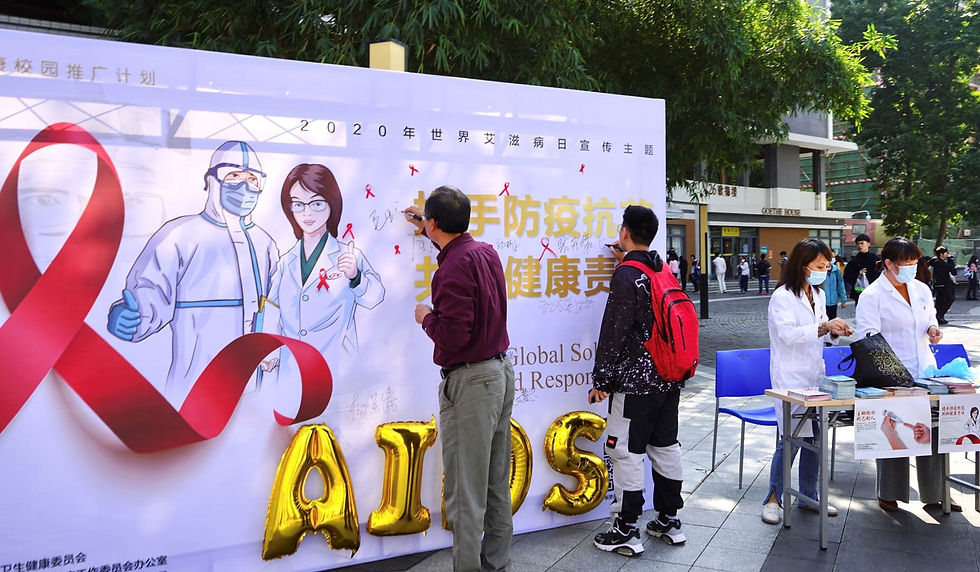It’s not a shame talking about AIDS
- Annie Zhang

- Jan 13, 2021
- 2 min read
By Wei Xiaojing, Deng Bowen

The “AIDS” theme activity called “Global solidarity, Shared responsibility” sponsored by UIC and Zhuhai Center of Disease Control was held in Huixian Square on Nov. 30, 2020.
Volunteers disseminated the basics of AIDS to passing students. However, there are some controversies among students for this annual campaign, questioning its publicity effect.
“It failed to make students better understand AIDS. Even worst, it will give rise to their fear of AIDS, increasing the incomprehension and even hatred of AIDS group,” Hong Shuhong, a sophomore major in Media Arts and Design Programme, said.
“We are still ashamed to talk about it,” he added, “the advocates should pay more attention to the safety of sexual behaviour, not negate the sexual behaviour itself like emphasize the sexual cleanliness.”
Yang Rongzhen, the instructor from the Voluntary Service Development Center of the Whole Person Education Office, also the person in charge of this event, said the purpose of the activity is to improve students’ knowledge about AIDS while combating discrimination.
He admitted that in the process of publicity, they tend to stress the harmfulness of AIDS.
Such promotion could attract people’s attention; nevertheless, it would also lead to people’s panic about AIDS, resulting in discrimination against AIDS patients. “However, during the years of awareness, we want to emphasize that AIDS is not a world-class illness but just a chronic disease. We don’t focus on the sexual cleanliness, but high-risk sexual behaviour itself,” he said.
This activity is a part of the AIDS prevention and intervention program for college students in Zhuhai. However, AIDS awareness has encountered many difficulties in UIC.
According to Zhuhai CDC’s staff, there are only five or six members in the CDC team, while there are hundreds of schools in Zhuhai. Since what they can do is very limited, they want to rely on the school platform for publicity.
“UIC does not offer relevant courses, and existing promotion can only be achieved through student clubs’ activities,” Guo Haipeng, the director of the Whole Person Education Office said. However, according to Yang Rongzhen, the enthusiasm of the club is not very high.
“The advocate may not update their knowledge of AIDS promptly, resulting in relatively simple publicity activities, and the content of publicity did not keep pace with the development,” he added.
“It’s far from enough to rely only on school or associations to promote AIDS,”
Mao Yaqing, the vice president of UIC said. In his view, promotion among peers and the improvement of personal awareness are more important.
According to the Chinese Centre for Disease Control and Prevention, by the end of October 2019, 958,000 people nationwide had been reported living with HIV/AIDS. In recent years, the number of HIV-infected people and patients among adolescents has risen rapidly, and cases of HIV infection and patients have been reported all over the city, mainly through the male-to-male transmission.
“AIDS advocacy is a challenging and time-consuming issue. Although AIDS discrimination is hard to heal, we should not be ashamed to talk about AIDS,” Yang said.



Comments